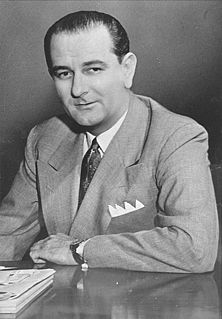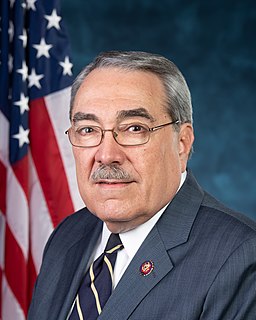C. Daniel "Dan" Barrett is an attorney, legal author, and North Carolina political figure.
Elections to choose members of the North Carolina Council of State were held on Tuesday, November 2, 2004.

The 1986 United States Senate elections was an election for the United States Senate in the middle of Ronald Reagan's second presidential term. The Republicans had to defend an unusually large number of freshman Senate incumbents who had been elected on President Ronald Reagan's coattails in 1980. Democrats won a net of eight seats, defeating seven freshman incumbents, picking up two Republican-held open seats and regaining control of the Senate for the first time since January 1981. The party not controlling the presidency gained seats, as usually occurs in mid-term elections.

The 1978 United States Senate elections in the middle of Democratic President Jimmy Carter's term. Thirteen seats changed hands between parties. The Democrats at first lost a net of two seats to the Republicans, and then one more in a special election. Democrats nevertheless retained a 58-41 majority.
Several judges of the North Carolina Supreme Court and the North Carolina Court of Appeals, the state's two appellate courts, were elected on November 2, 2004. The U.S. Presidential election, 2004, U.S. House election, 2004, U.S. Senate election, 2004, North Carolina Council of State election, 2004 and North Carolina General Assembly election, 2004 were held on the same day.

The 1956 United States Senate elections were elections for the United States Senate that coincided with the re-election of President Dwight D. Eisenhower. Although Democrats gained two seats in regular elections, the Republicans gained back two seats in special elections, leaving the party balance of the chamber remained unchanged.

The North Carolina Democratic Party (NCDP) is the North Carolina affiliate of the national Democratic Party in the United States. It is headquartered in the historic Goodwin house, which is located in the downtown area of Raleigh at 220 Hillsborough Street.
John S. Arrowood is an American attorney and judge. In April 2017, Arrowood was appointed to the North Carolina Court of Appeals by Governor Roy Cooper, to replace Judge Doug McCullough, a Republican who resigned one month before he would have reached the mandatory retirement age.
One justice of the North Carolina Supreme Court and six judges of the North Carolina Court of Appeals were elected to eight-year terms by North Carolina voters on November 4, 2008. This coincided with the presidential, U.S. Senate, U.S. House, gubernatorial, and Council of State elections.

The 1968 South Carolina United States House of Representatives elections were held on November 5, 1968, to select six Representatives for two-year terms from the state of South Carolina. The primary elections were held on June 11 and the runoff elections were held two weeks later on June 25. All five incumbents who ran were re-elected and the open seat in the 5th district was retained by the Democrats. The composition of the state delegation remained five Democrats and one Republican.
One justice of the North Carolina Supreme Court and five judges of the North Carolina Court of Appeals were elected by North Carolina voters on November 2, 2010, on the same day as the U.S. Senate election, U.S. House elections, and other state-level elections. North Carolina judicial elections are non-partisan. Terms for seats on each court are eight years. All incumbent judges and justices who sought re-election won their respective races, except for Judge Cressie Thigpen of the Court of Appeals, who had been appointed shortly before the election and lost North Carolina's first statewide election to use Instant-runoff voting.

The Ohio general elections, 2010 were held on November 2, 2010 throughout Ohio. Primary elections took place on May 4, 2010.

The Wisconsin spring nonpartisan primary election was held February 16, 2010. The Wisconsin spring nonpartisan general election was held April 6, 2010. Voters statewide cast ballots for Wisconsin Court of Appeals and Wisconsin Circuit Court judges.
One justice of the North Carolina Supreme Court and three judges of the North Carolina Court of Appeals were elected by North Carolina voters on November 6, 2012, concurrently with the elections for Governor and other offices. North Carolina judicial elections are non-partisan. Terms for seats on each court are eight years. In three of the four races, incumbents were re-elected to their seats, but incumbent Court of Appeals Judge Cressie Thigpen was defeated by Chris Dillon.
On November 6, 2012, the U.S. state of Oregon held statewide general elections for four statewide offices, both houses of the Oregon Legislative Assembly, and several state ballot measures.
Four justices of the seven-member North Carolina Supreme Court and four judges of the 15-member North Carolina Court of Appeals were elected by North Carolina voters on November 4, 2014, concurrently with other state elections. Terms for seats on each court are eight years.
One justice of the seven-member North Carolina Supreme Court and five judges of the 15-member North Carolina Court of Appeals were elected by North Carolina voters on November 8, 2016, concurrently with other state elections. Terms for seats on each court are eight years.
One justice of the seven-member North Carolina Supreme Court and three judges of the 15-member North Carolina Court of Appeals were elected by North Carolina voters on November 6, 2018, concurrently with other state elections. Terms for seats on each court are eight years. These elections were partisan for the first time since the elections of 2002. A law passed by the North Carolina General Assembly in 2017 cancelled primary elections for judicial elections in 2018 only, meaning that an unlimited number of candidates from any party could run in the general election.
At least three justices of the seven-member North Carolina Supreme Court and five judges of the 15-member North Carolina Court of Appeals will be elected by North Carolina voters on November 3, 2020, concurrently with other state elections. Terms for seats on each court are eight years. These elections are conducted on a partisan basis.










